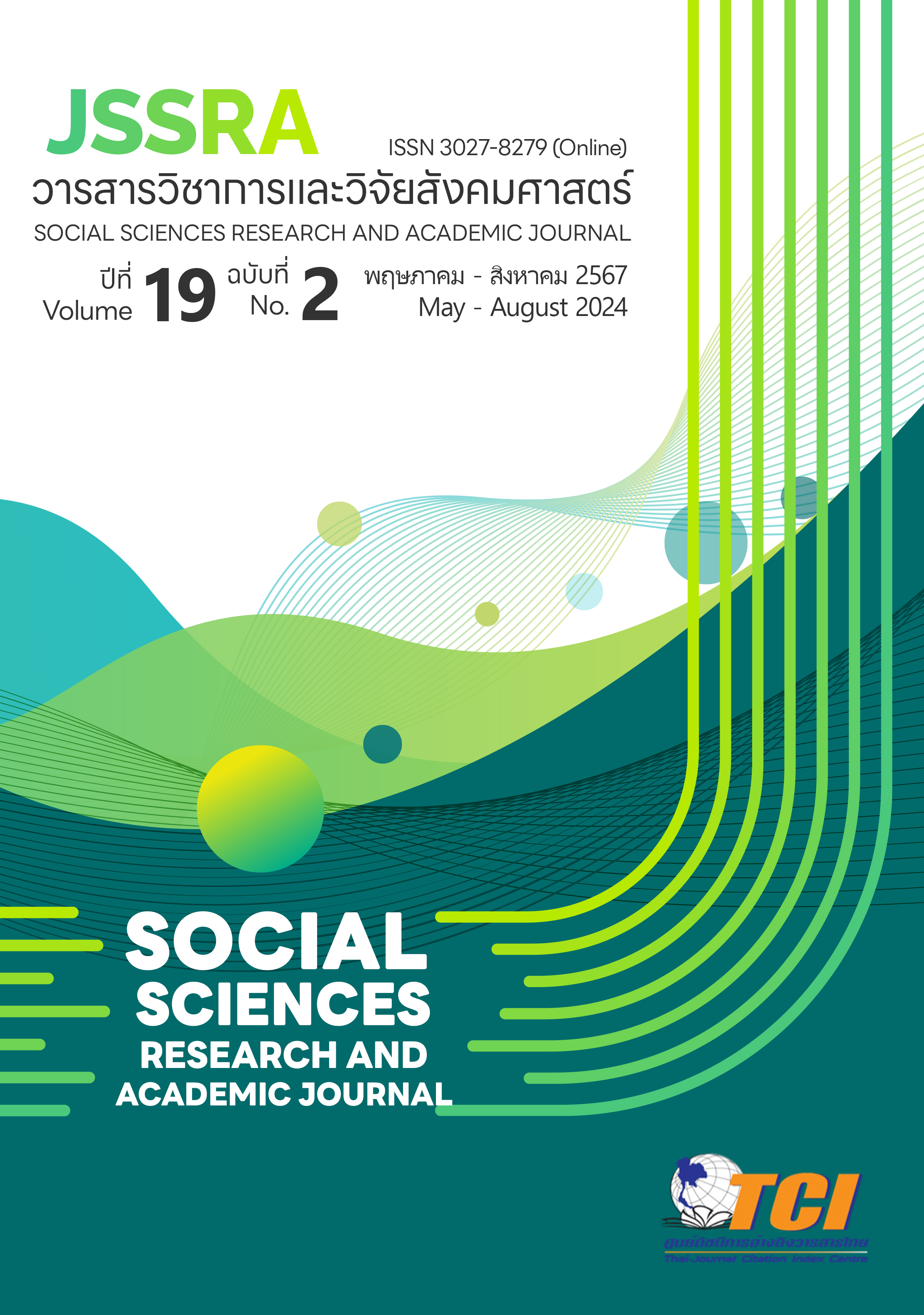The Effect of Distributed Leadership on Teacher Efficacy in China: A Moderated Mediation Model
Main Article Content
Abstract
The objective of this research was to analyze the moderated mediating effect of teachers' job satisfaction on the relationship between distributed leadership and teachers' self-efficacy in China. The data were from the 2018 Teaching and Learning International Survey (TALIS 2018) collected by the Organization for Economic Co-operation and Development (OECD) by using a stratified two-stage sampling method. The sample consisted of 3,976 teachers from 198 Chinese schools. The research instrument was a likert scale questionnaire consisting of 33 items with
a reliability range between .70 and .94. A moderated mediation analysis was employed using PROCESS version 4.0. The findings revealed that the controlling for teachers’ characteristics such as gender, teaching experience, hours spent on professional development, hours spent on teamwork with others, and hours spent on administrative work. The teacher’s job satisfaction moderated the influence of distributed leadership on teachers’ self-efficacy both directly (b = .05) and indirectly (b = .02) with statistically significance at the .05 level. In other words when teachers were satisfied with their jobs, the influence of distributed leadership on teachers’ self-efficacy increased accordingly.
Article Details
References
Kanchanawasi, S. (2012). Applied statistics for behavioral research. (6th ed). Bangkok: Chulalongkorn University Press. (In Thai).
Bandura, A. (2001). Social Cognitive Theory: An Agentic Perspective. Annual Review of Psychology, 52(1), 1-26.
Hair, J. F. et al. (2019). Multivariate Data. USA, Pearson Education Limited.
Hayes, A.F. (2018). Introduction to Mediation, Moderation, and Conditional Process Analysis: A Regression-Based Approach. (2nd ed.), New York: The Guilford Press.
Heck, R. and Hallinger, P. (2009). Assessing the Contribution of Distributed Leadership to School Improvement and Growth in Math Achievement. American Educational Research Journal, 46, 659-689.
Hord, S. M., Roussin J, L. and Sommers, W. A. (2010). Guiding Professional Learning Communities: Inspiration, Challenge, Surprise, And Meaning. Corwin Press.
Ke, Z., Yin, H. and Huang, S. (2019). Teacher Participation In School-Based Professional Development in China: Does It Matter for Teacher Efficacy And Teaching Strategies?. Teachers and Teaching, 25(7), 821-836.
Kunter, M., Klusmann, U., Baumert, J., Richter, D., Voss, T. and Hachfeld, A. (2013). Professional Competence of Teachers: Effects on Instructional Quality and Student Development. Journal of Educational Psychology, 105(3), 805.
Liu, Y., Bellibaş, M. Ş., & Gümüş, S. (2021). The Effect of Instructional Leadership and Distributed Leadership on Teacher Self-Efficacy and Job Satisfaction: Mediating Roles of Supportive School Culture and Teacher Collaboration. Educational Management Administration & Leadership, 49(3), 430-453.
OECD (2019). PISA 2018 Results (Volume III): What School Life Means for Students’ Lives. Paris: Author.
Omansky, R., Eatough, E. M. and Fila, M. J. (2016). Illegitimate Tasks as an Impediment to Job Satisfaction and Intrinsic Motivation: Moderated Mediation Effects of Gender and Effort-Reward Imbalance. Frontiers in Psychology, 7, 1818.
Sargent, T. and Hannum, E. (2005). Keeping Teachers Happy: Job Satisfaction Among Primary School Teachers in Rural Northwest China. Comparative Education Review, 49(2), 173-204.
Sutcher, L., Darling-Hammond, L. and Carver-Thomas, D. (2016). A Coming Crisis in Teaching? Teacher Supply, Demand, and Shortages in the U.S. Palo Alto, CA: Learning Policy Institute.
You, S., Kim, A. Y. and Lim, S. A. (2017). Job Satisfaction Among Secondary Teachers in Korea: Effects of Teachers' Sense of Efficacy and School Culture. Educational Management Administration & Leadership, 45(2), 284-297.
Zhou, Y. F. and Nanakida, A. (2023). Job Satisfaction and Self-Efficacy of In-Service Early Childhood Teachers in the Post-COVID-19 Pandemic Era. Humanities and Social Sciences Communications, 10, 721.
Zee, M. and Koomen, H. M. (2016). Teacher Self-Efficacy and Its Effects on Classroom Processes, Student Academic Adjustment, and Teacher Well-Being: A Synthesis of 40 Years of Research. Review of Educational Research, 86, 981-1015.


